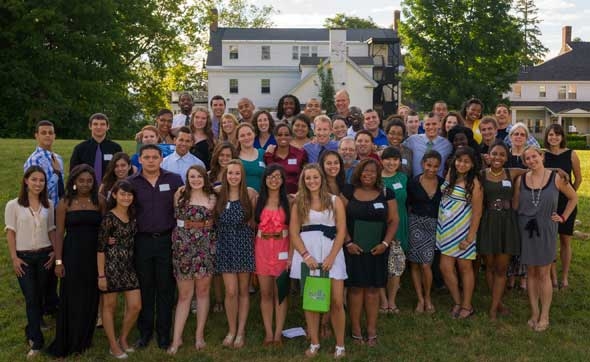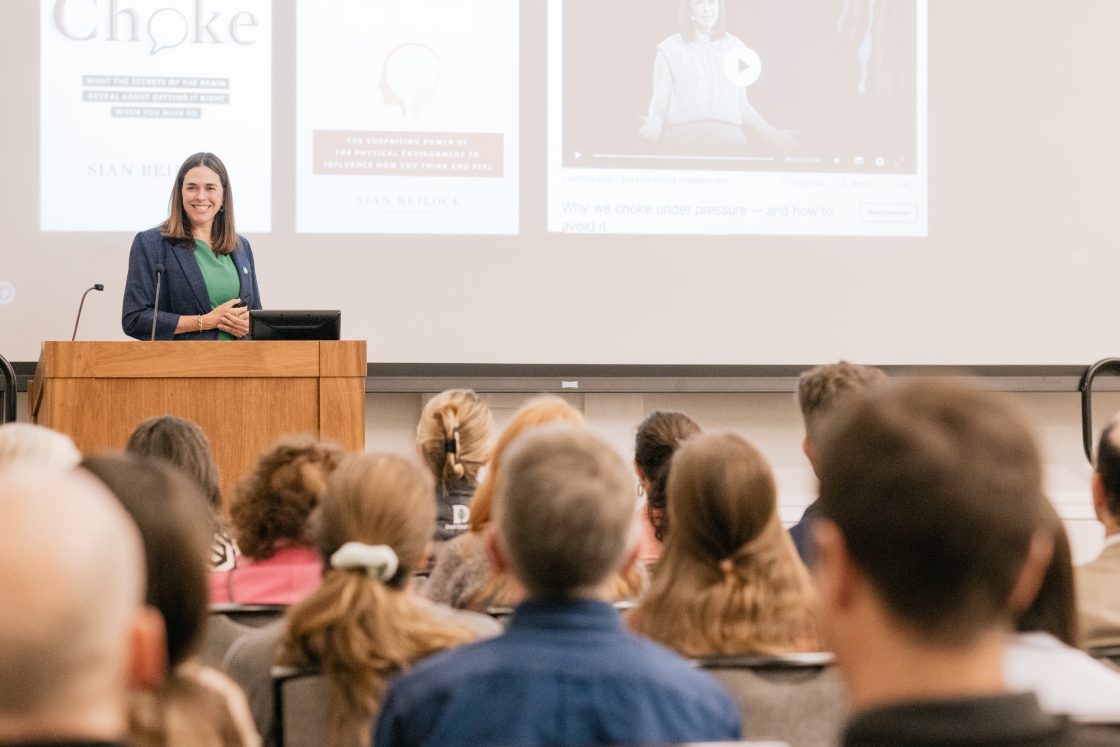Every summer, more than 300 Dartmouth sophomores volunteer with the Summer Enrichment at Dartmouth (SEAD) program, sponsored by the Tucker Foundation. Founded in 2001, SEAD brings promising students from under-resourced high schools to campus and provides educational opportunities during their summer vacation. Each class of students return to Dartmouth after every year of high school.

Students in the SEAD program take classes to prepare them for college, and participate in a number of extracurricular activities such as whitewater rafting, a studio art workshop, and attending a Boston Red Sox game. (photo by Eli Burak ’00)
This year’s SEAD students are 26 rising seniors from places such as Fairmont, W. Va., Bronx, N.Y., and Raymond, N.H. Classes include “The College Application,” “Speech and Leadership,” and “The College Essay.” SEAD students also participate in a range of activities outside of class, such as whitewater rafting, a studio art workshop, a political seminar on the presidential election, and an outing to a Boston Red Sox game.
SEAD is an important aspect of summer term. Dartmouth students volunteer as mentors, academic coaches, and organizers of extracurricular activities. In addition, 30 faculty and staff members volunteer for the program, serving as individual advisers for SEAD students.
“In terms of Dartmouth volunteers,” says Irvin Gomez ’14, academic coach for SEAD, “I believe SEAD provides an insight into the difficulties that under-resourced, first-generation students trying to go to college face during the college process.”
For some Dartmouth students, the program can give them experience in potential career paths.
“As someone who wants to pursue education,” says academic coach Elizabeth Niehaus ’14, “SEAD has given me great hope, because I witnessed how worthwhile the enrichment of high school students’ lives is.”
The most recent graduating SEAD class saw 100 percent of its students enroll in colleges or universities.
“SEAD works because of the energy, passion, and commitment to social justice of all the various groups involved,” says Jay Davis ’90, executive director of SEAD.
In 2009, The Chronicle of Higher Education published an article featuring SEAD.
